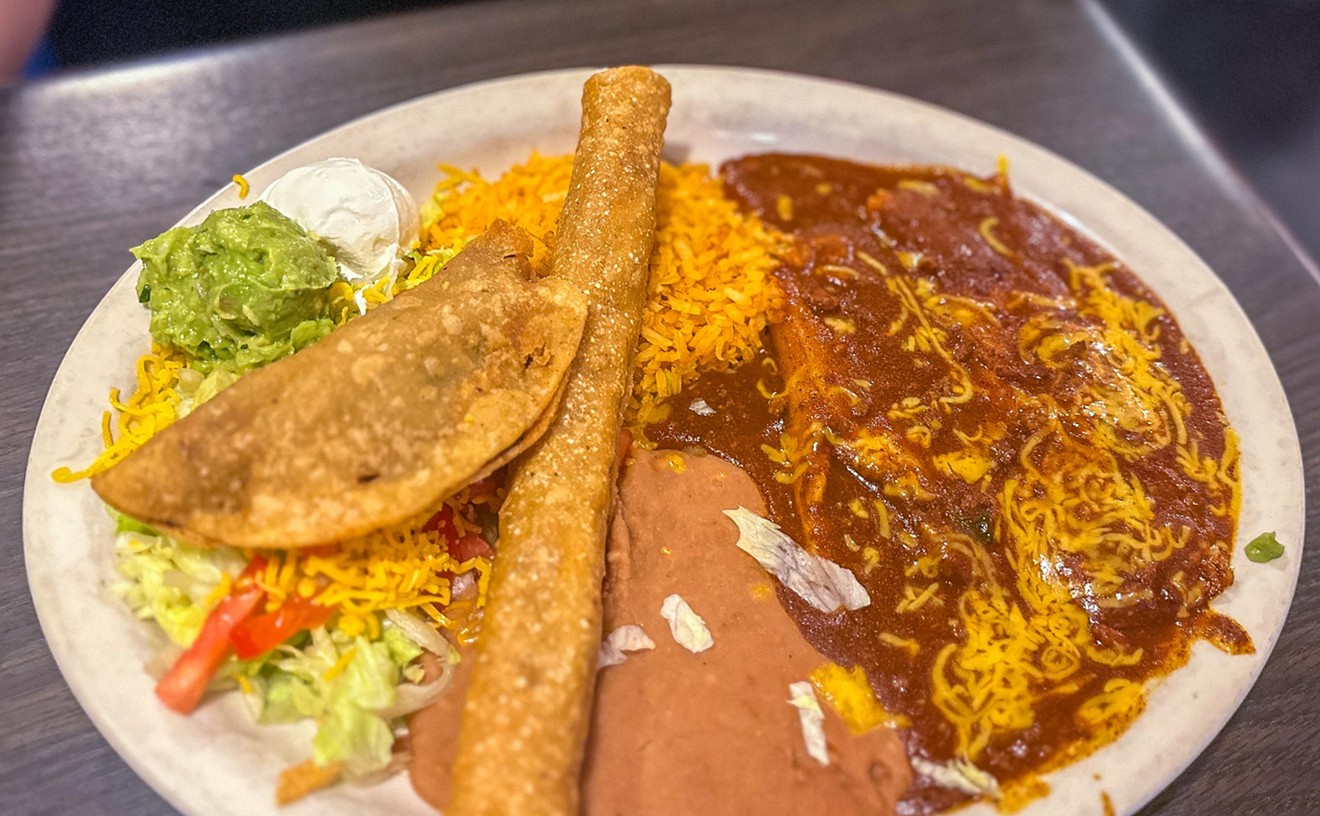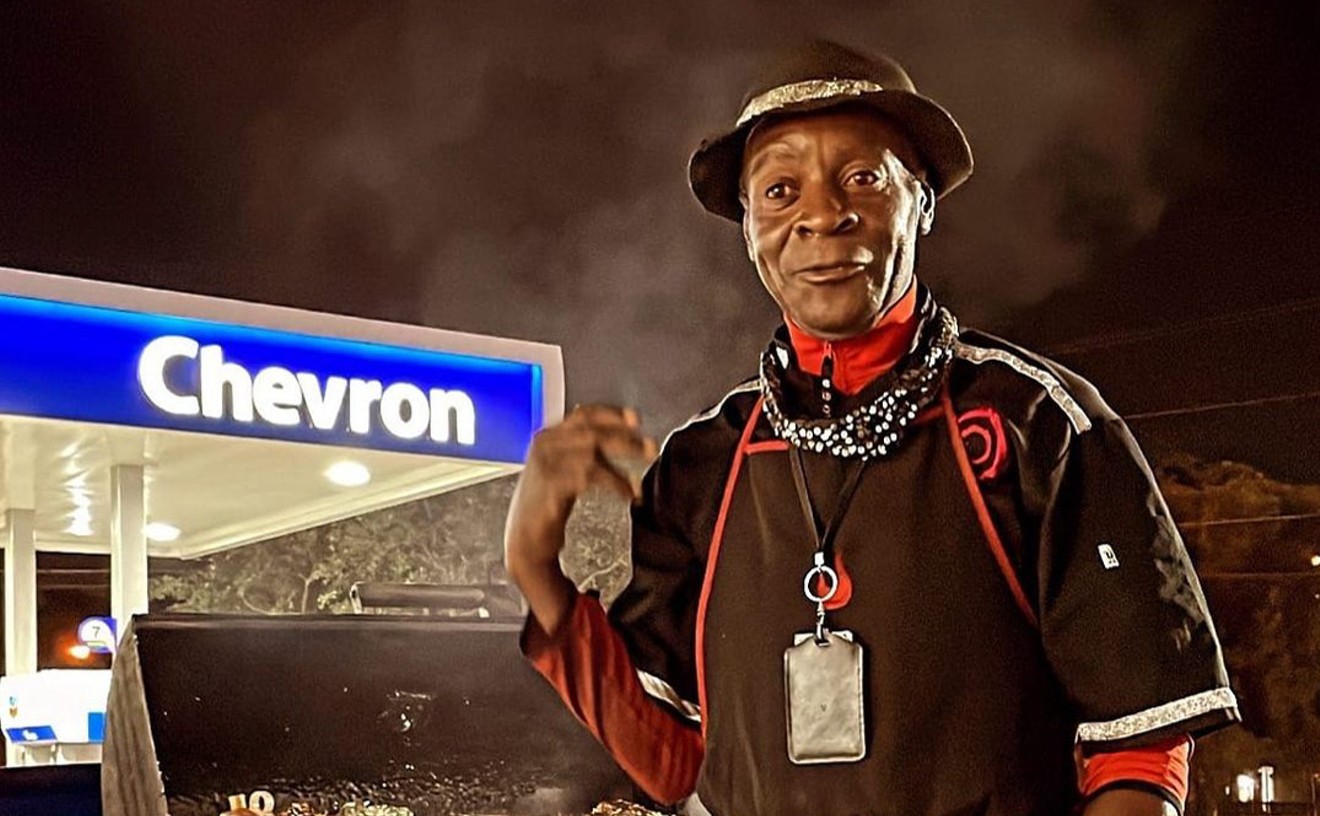I still remember my first trip to Pera Turkish Kitchen in Far North Dallas. Four of us were piled in the car, headed up Preston Road, and I was salivating already, based only on food-blog scraps. I'd read that Habip Kargin and Serdar Sensel, the half brothers who own the place, used fresh, bright ingredients in their Middle Eastern cooking; that their dolmas presented grape leaves rolled taut around rice that retained its bite; and most important, it was rumored they baked their own bread and it perfumed the dining room. Apparently they brought it to the table piping hot.
You can tell a lot about a restaurant by the bread it serves. The pide bread -- different from pita -- served at Pera came out in near-perfect discs, about the size of a CD and as thick as a deck of cards. The bread was dimpled, it glistened with oil and it was flecked with herbs and sesame seeds. Each round let out a poof of steam when you tore in. That day I learned the drive was worth it, for the bread and olive oil alone.
Compare this to restaurants that buy pre-baked bread that sometimes stands around in the kitchen for days. Often that carelessness extends to other ingredients, cooking techniques and facets of the kitchen's mechanics. If a restaurant has great bread, the rest of the menu almost always measures up. If the bread eats like a stale cracker or is otherwise a tasteless afterthought, you may well end up renouncing the remainder of your meal.
At Pera, my bread indicator was spot on. That night, and the nights that followed, I enjoyed impossibly smooth hummus and vibrant, green tabouleh. I enjoyed a delicious cacik, a savory yogurt with cucumbers, garlic and mint, and eggplant whipped into a satiny purée. I loved a whole bronzino, fileted and deboned tableside, and for the most part, I loved Pera as a whole.
When they opened their second restaurant, Pera Wine and Tapas, the brothers bought their bread from a baker, but they obviously spent time picking out worthy loaves. Crusty and chewy, the French baguettes didn't exactly fit in with the Middle Eastern cuisine, but the bread was great and so was most of the rest of the menu. Pera No. 2 left you feeling warm and satisfied after dinner.
Then, earlier this year, the brothers announced a third restaurant, Pera Wine Bistro, and this one didn't require a trek north. It would open in Uptown, and bring some of DFW's best Middle Eastern cooking to ambitious and risk-taking diners. And of course, there would be bread. Right?
Pera No. 3 is more of a café, despite its name. The menu is short and simple, offering many of the appetizers you'd expect at a Middle Eastern restaurant, and a number of meats served on a platter or as a sandwich. That's about it.
And here's the thing: The bread for those sandwiches is a locally baked lavash-style flatbread that serves its purpose -- as a wrapper for grilled meats and vegetables, or a snowplow for huge mouthfuls of hummus and babaganoush -- but nothing more. Compared to those steamy pide loaves at Pera No. 1, it's nothing special. Lavash is best served straight from the oven because it dries out, becomes brittle and is prone to mold quickly. The bread served at Pera isn't always at its best.
With entrees hovering at $11, Pera Wine Bistro is admittedly a steal -- especially in Uptown. Throughout the neighborhood, you can pay $16 for a hamburger that's overcooked, and 10 times that for a steak dinner. At the latest Pera, a substantial meal for a couple hovers around $50.
Of course, you'll forgo some of the niceties of a more formal restaurant. The dining room is lit as brightly as a grocery store, and the small space is more claustrophobic than cozy or romantic. Kargin and Sensel swooped in on the Sharaku space as soon as it closed. The old izakaya was remodeled quickly, with a small kitchen installed by the front door and a counter that extends into a bar and runs the length of the dining room. Dozens of wine bottles, many open, sit behind the bar, and you can watch as kebabs sizzle on the grill and shawarma spins on vertical spits.
The meat is tempting, but better to start with a few of the salads and dips on the appetizer menu. The tabouleh is minty, with plenty of green onions and parsley, and the hummus recalls the Pera to the north. Babaganoush is loaded with chunks of eggplant and the dolmas are fresh and bright.
The falafel needs work. The rounds are pressed into discs, like a vegetarian Smashburger. The flavor is fine but the texture is Play-Doh.
I liked every kebab that came off the grill, especially for the price. Beef was tender and juicy and chicken was pulled off the flames before it got dry. The salmon was fresh tasting, too. Ordered as a platter, each comes with a simple salad and standard, savory short-grain rice. The kebabs and shawarma are fine enough as a plate, but they realize their full potential in sandwiches served with a simple yogurt sauce, and sometimes a chili paste.
Those sandwiches may ultimately be your best use of Pera Wine Bistro. Office workers within walking distance will no doubt appreciate a new lunch option in the neighborhood that bucks the burger trend and offers interesting flavors. Late-night drinkers looking for something to stave off morning hangovers will appreciate that the restaurant is open until 4 a.m. Thursday through Saturday. But those hoping to capture the magic of the first two Pera restaurants will feel a little let down, from the moment they bite into that bread.
Pera Wine Bistro 2633 McKinney Ave. No. 170, 214-484-7706, perawinebistro.com, 11 a.m.-2 a.m. Sunday-Wednesday, 11 a.m.-4 a.m. Thursday-Saturday, $$
Hummus $6 Tabouleh $6 Babaganoush $6 Kebabs $11 Baklava $5










